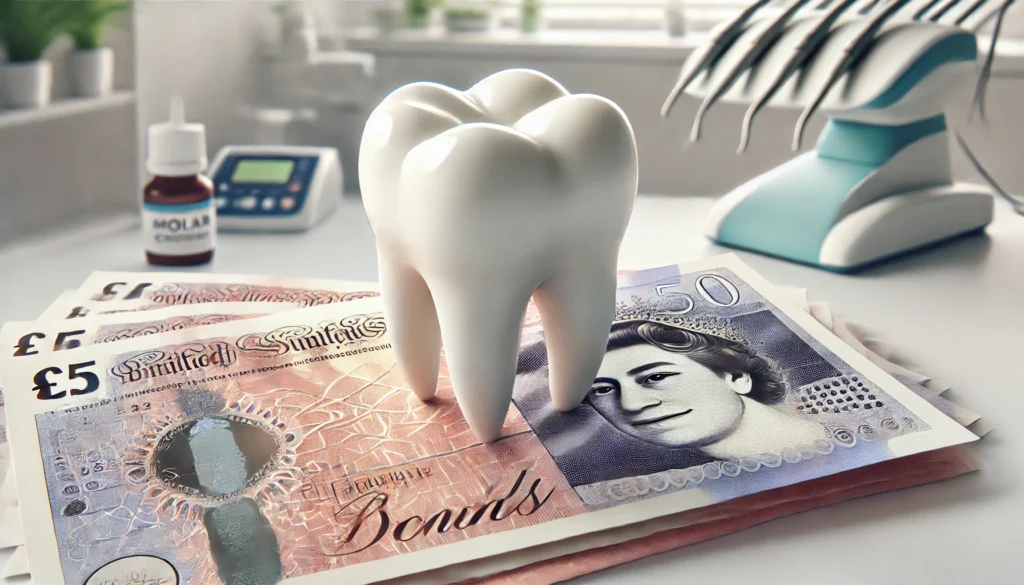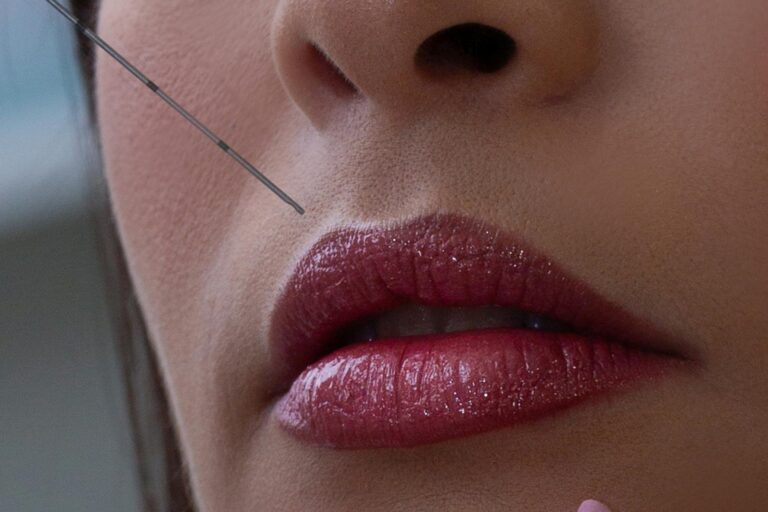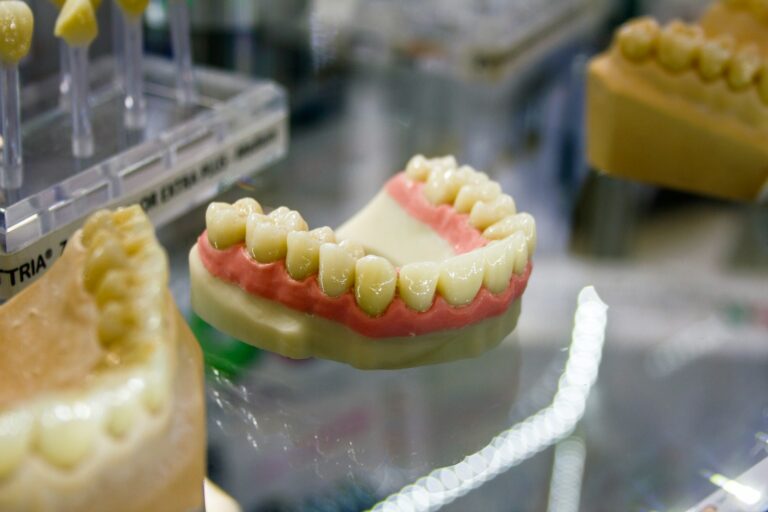
Dental crowns are widely recognized as an effective solution for restoring and protecting damaged teeth, yet many individuals have questions regarding the associated costs and benefits.
This article delves into the different types and materials of dental crowns, discussing their necessity and the costs of dental crowns. It also examines whether investing in dental crowns is a worthwhile decision in the long run and offers tips on locating affordable options.
Explore how dental crowns can not only enhance your smile but also improve your overall quality of life.
What Are Dental Crowns?

Dental crowns play a vital role in restorative dentistry. They act as protective caps placed over damaged teeth, helping to restore their shape, size, strength, and appearance.
Dentists often recommend this procedure for several reasons, primarily to enhance the aesthetic appeal of a smile while also supporting overall dental health. Additionally, dental crowns can greatly improve a person’s quality of life by preventing further tooth decay and associated complications.
This makes them a popular option for patients looking to achieve both functional and cosmetic enhancements in their oral care routine.
1. Types of Dental Crowns
There are various types of dental crowns available, each designed to meet different needs and preferences when it comes to restoring a tooth after damage or decay.
Porcelain crowns are particularly favoured for their natural appearance, while ceramic crowns provide a comparable aesthetic but may be reserved for specific cases. Metal crowns, in contrast, offer exceptional strength and durability, making them ideal for back teeth that experience significant chewing pressure.
Resin crowns can present a more cost-effective option for patients, delivering reasonable aesthetics, although they may wear down faster than other types. Each type of crown has its own unique advantages and potential drawbacks. For example, while porcelain crowns may be more prone to chipping or cracking, they blend seamlessly with natural teeth, which is a cosmetic benefit that many patients desire.
When determining the best option for dental restoration, patients should take into account their lifestyle, the location of the affected tooth, and their budget. Consulting with a dental professional can provide valuable insights, enabling individuals to make an informed decision that aligns with their specific dental needs.
2. Materials Used for Dental Crowns
The choice of materials for dental crowns plays a crucial role in their durability, aesthetic appeal, and overall effectiveness in repairing teeth. Common options include porcelain, ceramic, and metal, each presenting unique advantages in terms of strength, appearance, and cost.
Porcelain and ceramic crowns are often preferred for their natural appearance, making them especially suitable for front teeth. In contrast, metal crowns are recognised for their outstanding durability and resistance to wear, making them ideal for molars that face significant chewing pressure.
Selecting the right material goes beyond just aesthetics; it has a significant impact on patient satisfaction and long-term oral health. For instance, porcelain-fused-to-metal crowns offer a combination of aesthetic appeal and the robust strength of metal, providing a balanced solution for both front and back teeth.
Moreover, the biocompatibility of these materials ensures a minimal risk of allergic reactions, which promotes overall health. The longevity of dental crowns is also enhanced by their wear resistance, directly influencing their performance under daily stress.
By understanding these properties, dental professionals can make informed decisions that improve patient outcomes, ensuring that the crowns effectively fulfil their intended purpose.
Why Do People Need Dental Crowns?
Individuals often pursue dental crowns for a variety of reasons, mainly to tackle issues such as tooth damage, decay, or aesthetic concerns.
Dental crowns are crucial for tooth repair; they serve as a protective barrier for weakened teeth and help restore functionality following invasive procedures, such as root canal treatments.
They play an important role in preventive dentistry by reinforcing the structure of a compromised tooth and preventing further dental complications.
Additionally, crowns can enhance the overall appearance of a smile, which can significantly boost one’s confidence.
1. Protection for Damaged Teeth
One of the primary reasons individuals seek dental crowns is to protect damaged teeth from further decay or the possibility of extraction. When a tooth has been significantly weakened by decay, a dental crown can effectively cover and support it, preventing harmful bacteria from entering and causing additional complications.
This restoration technique not only helps preserve the original tooth structure but also maintains the tooth’s function and appearance, positively contributing to overall oral health.
Choosing dental crowns represents a proactive approach to oral care, as untreated decay can lead to more serious issues, such as infections or abscesses. The process of fitting a crown typically involves a comprehensive examination and may require multiple visits to ensure a precise fit, which is crucial for achieving optimal long-term results.
This restoration method serves as a protective barrier, safeguarding the remaining tooth from further deterioration and highlighting the importance of preventive care in maintaining dental health over time.
2. Cosmetic Purposes
Cosmetic enhancement plays a crucial role in the increasing demand for dental crowns, as these restorations can significantly enhance the aesthetic appeal of a person’s smile. Many individuals opt for crowns to cover discoloured or misshapen teeth, achieving a more uniform and attractive appearance.
A well-fitted porcelain or ceramic crown can blend seamlessly with natural teeth, enhancing one’s smile and increasing patient satisfaction with their dental results, making dental crowns a preferred choice in aesthetic dentistry.
These restorations not only address imperfections but also instil a sense of confidence and self-assurance during social interactions. Patients often have high expectations regarding the transformative effects of cosmetic dentistry, and dental crowns meet these expectations by restoring both functionality and beauty.
The impact of these cosmetic enhancements goes beyond mere appearance; improved dental aesthetics can encourage individuals to maintain better oral hygiene, positively contributing to their overall dental health.
Thanks to advancements in materials and techniques, the outcomes achieved with crowns can be both natural-looking and durable, further solidifying their status in modern cosmetic procedures.
3. Support for Dental Bridges
Dental crowns are essential in providing support for dental bridges, which serve to replace missing teeth. In this restorative dentistry procedure, crowns are placed on the teeth adjacent to the gap, anchoring the bridge securely to ensure it functions effectively and remains stable.
This connection is crucial for the bridge’s durability, enhancing the overall restoration process while helping to maintain proper dental alignment and oral health.
Essentially, these crowns serve as strong foundations that not only secure the bridge but also help distribute bite forces evenly, thereby preventing potential damage to surrounding teeth.
During dental appointments, specialists take great care in crafting these crowns to match the patient’s natural teeth, ensuring a seamless appearance and optimal functionality.
Expertise in this field is vital, as the success of a dental bridge largely hinges on the precise fit and strength of these crowns. A skilled dental professional knows how to integrate crowns effectively into the broader dental restoration plan, ensuring improved aesthetics and boosting the patient’s confidence.
What Are the Costs of Dental Crowns?

It is important for patients considering dental crowns to understand the associated costs, which can vary significantly depending on factors such as the type of crown, the use of a temporary crown during the process, and the location of the dental practice.
Generally, the prices for dental crowns, including the temporary crown phase, can range from a few hundred pounds to over a thousand pounds, influenced by the materials chosen and the complexity of the procedure.
Patients are encouraged to explore their dental insurance options, as many plans provide partial coverage for dental crowns, including temporary crowns, helping to reduce out-of-pocket expenses.
1. Factors Affecting the Cost of Dental Crowns
Several factors can significantly influence the cost of dental crowns, including the type of materials used, the dentist’s fees, and the economic conditions in the area. For example, porcelain crowns usually fall on the higher end of the price spectrum due to their aesthetic appeal and durability, whereas metal crowns might provide a more economical option.
Additionally, the cost of living in your area can affect pricing; typically, areas with a higher cost of living see elevated dentist fees and, consequently, higher prices for dental crowns.
The complexity of the procedure also plays a role in determining the cost of dental crowns for individual patients. If preliminary treatments, such as root canal treatment, are needed before placing a crown, this will add to the overall expense.
Moreover, geographic variations mean that urban centres often face stricter regulations and higher overhead costs for dental practices, leading to increased prices for crowns.
Understanding these cost components is crucial, particularly for patients navigating insurance claims and financing options. This knowledge can help anticipate out-of-pocket expenses and select the most appropriate payment strategies.
2. Average Costs of Dental Crowns
The average costs of dental crowns can vary significantly, with patients generally expecting to pay between £800 and £2,500 for a single crown, depending on the materials used and the dental practice selected.
While these figures may appear daunting, it is important to note that many dental insurance plans cover a portion of the expense, making it more manageable within a dental budget. Additionally, exploring patient financing options can allow individuals to spread the costs over time, thereby transforming dental crowns into a more feasible long-term investment.
This price range often reflects the differences in crown types available, such as porcelain-fused-to-metal, all-ceramic, or gold crowns, each offering unique advantages in terms of durability and aesthetics.
Understanding how insurance coverage can alleviate these expenses is crucial, as many plans typically cover a percentage of the costs for medically necessary procedures. Therefore, it is beneficial for individuals to carefully review their coverage details.
Engaging in a discussion about flexible payment plans or low-interest financing with the dental practice can provide further strategies to manage these costs effectively. This approach ultimately supports better oral health without creating an overwhelming financial burden.
Is It Worth the Investment?
Investing in dental crowns is a significant decision for many patients, but understanding their long-term benefits can truly make this dental restoration worthwhile. Crowns serve not only to restore functionality and aesthetics but also to provide lasting durability.
This durability can help prevent further dental issues and enhance overall oral health. Patients who choose quality crowns frequently express high levels of satisfaction with their dental experience, as they benefit from improved chewing ability and a more attractive smile.
This satisfaction often reflects a positive treatment outcome over time.
1. Long-Term Benefits of Dental Crowns
The long-term benefits of dental crowns go beyond merely addressing immediate tooth repair; they can significantly diminish the risk of future dental complications and the associated costs of more extensive procedures.
One of the primary advantages of crowns is their durability. High-quality materials are designed to endure over time, which often results in lower long-term costs related to additional dental restorations. This positions crowns as not only a wise financial choice but also a proactive strategy for maintaining dental health and enhancing patient outcomes.
Patients have access to excellent material options, such as porcelain and gold, allowing them to select crowns that not only blend seamlessly with their natural teeth but also provide superior strength and longevity. This impressive durability reduces the likelihood of requiring further interventions, thereby boosting patient satisfaction, as they can experience fewer visits for repairs or replacements.
By choosing to invest in crowns, individuals are effectively prioritizing preventive care, which ultimately fosters better oral health in the long run. This commitment to using robust treatments highlights a deeper understanding of the importance of comprehensive dental care, benefiting both the patient and the overall healthcare system.
2. Comparison to Other Dental Procedures
When evaluating dental crowns in comparison to other dental procedures, such as dental implants or root canal treatments, it is important to consider both the benefits and costs associated with each option.
Dental crowns are typically less invasive and can be completed in a shorter period than implants, making them a more accessible choice for many individuals. While implants offer a permanent solution for missing teeth, crowns serve as an effective way to restore damaged teeth, showcasing their versatility among dental treatment options.
Dental crowns can be particularly suitable for those who may feel apprehensive about undergoing more extensive procedures, like implants, which necessitate surgical intervention and longer recovery times.
In contrast, root canal treatments aim to preserve a tooth’s natural structure when infection arises, providing an alternative that can save the tooth, albeit with the potential for discomfort and multiple visits.
As patients weigh these options, they often reflect on their priorities, such as budget constraints, the severity of dental issues, and their comfort level with various procedures. This careful consideration helps ensure that the chosen treatment aligns with their overall health goals.
3. Impact on Quality of Life
The impact of dental crowns on one’s quality of life can be quite significant. They not only improve the functionality of teeth but also greatly enhance a patient’s confidence through smile enhancement. Many individuals express a higher level of dental satisfaction after receiving crowns, highlighting improvements in their ability to eat, speak, and smile without hesitation.
These enhancements play a crucial role in overall oral health, making crowns an important consideration for anyone looking to elevate their dental experience and, as a result, their quality of life.
By restoring the natural function of damaged or decayed teeth, dental crowns are essential in helping patients maintain a balanced diet, which is vital for overall health. The aesthetic advantages should not be underestimated; a well-crafted crown can eliminate feelings of self-consciousness, enabling individuals to engage more freely in social situations.
This boost in self-image often leads to increased social interactions and improved emotional well-being, fostering a sense of belonging. Ultimately, for those in search of long-term solutions, dental crowns offer not only physical restoration but also emotional rejuvenation, enhancing the standard of living in multiple aspects.
How to Find Affordable Dental Crowns

Finding affordable dental crowns can indeed seem like a challenging task; however, gaining a clear understanding of your options can streamline the process and help you manage costs more effectively.
Many dental practices provide payment plans or financing options, which can make treatment more accessible. Furthermore, if you have dental insurance, it can significantly ease the financial burden.
It’s also worth considering local dental schools or clinics, as they often offer services at reduced rates while still being overseen by experienced dental professionals. This can be a viable way to receive quality care without breaking the bank.
1. Dental Insurance Coverage
Dental insurance coverage is essential in making dental crowns more affordable for patients, as it often covers a significant portion of the costs associated with this restoration procedure. Understanding the specifics of one’s plan, including coverage limits and any necessary claims, is crucial for maximising benefits. Many insurance policies also offer patient financing options, which can effectively help manage out-of-pocket expenses.
To navigate the complexities of dental insurance, individuals should begin by reviewing their policy documents carefully to determine the extent of coverage for crown procedures. Typically, coverage may be limited to a percentage of the total cost, depending on factors such as the type of crown and the number required.
Regarding filing a claim, patients should be prepared to provide detailed treatment plans and cost estimates from their dental provider. This makes close collaboration with both the dentist’s office and the insurance company essential.
By being informed about potential waiting periods, exclusions for pre-existing conditions, and annual maximums, patients can make more informed financial decisions regarding their dental health.
2. Payment Plans and Financing Options
Many dental clinics offer payment plans and financing options designed to help patients manage the costs associated with dental crowns in a more manageable way. These flexible arrangements allow patients to spread their dental expenses over time, making it easier to incorporate the treatment into their overall budget.
By understanding the financing options available, patients can make informed decisions about their oral care without jeopardising their financial stability.
With a variety of plans to choose from, including interest-free financing and extended payment terms, individuals have the opportunity to select an option that best fits their unique financial circumstances and preferences. Some clinics work with third-party financing companies that specialise in dental care, providing attractive terms that significantly lessen the out-of-pocket expenses.
By taking advantage of these payment plans, patients can prioritise essential treatments, ensuring that their oral health remains a top priority, even when financial constraints arise.
Additionally, many clinics offer clear breakdowns of costs, which enhances transparency and enables patients to budget proactively for their future dental needs.
3. Dental Schools or Clinics
Exploring dental schools or clinics can be an excellent way for individuals to find affordable dental crowns while receiving quality care. Dental schools typically offer services at reduced rates because students perform procedures under the supervision of experienced dental professionals.
This arrangement not only enhances accessibility to dental care for patients but also plays a vital role in the education and training of future dentists.
This approach allows individuals to save significantly on their dental expenses without compromising the quality of care they receive. The environment in these clinics is often focused on learning, which encourages students to strive for the best outcomes. Patients frequently notice that their treatments are carried out with meticulous attention to detail, as students are eager to impress their instructors.
By considering dental schools for their dental needs, individuals can benefit from financial savings while also enjoying the peace of mind that comes from knowing they are contributing to the professional development of aspiring dentists.
4. Negotiating with Your Dentist
Negotiating with your dentist regarding the costs associated with dental crowns can often result in more affordable options and greater flexibility in managing dental expenses. Many dental professionals are receptive to discussing fees and may be willing to provide discounts or payment plans, particularly when they are aware of your financial circumstances. Starting this conversation can be quite beneficial, as it helps ensure you receive the necessary dental care without experiencing overwhelming financial strain.
It is essential for patients to recognise the importance of financial planning in maintaining long-term oral health. Understanding the estimated costs and available payment options can significantly alleviate stress and give the power to individuals to make informed decisions about their dental care.
Encouraging an open dialogue about budgetary concerns allows dentists to tailor their recommendations, potentially leading to more accessible solutions. By actively participating in discussions about expenses, patients can cultivate a stronger partnership with their dental care providers, ultimately resulting in a more positive and supportive experience in managing dental treatments.
Frequently Asked Questions
What are dental crowns and why are they necessary?
Dental crowns are a type of dental restoration that covers and protects damaged or weakened teeth. They are necessary when a tooth has a large cavity, fracture, or is weakened due to a root canal or other dental procedure.
How much do dental crowns typically cost?
The cost of a dental crown can vary depending on factors such as the type of crown, location, and the dentist’s experience. On average, a dental crown can cost anywhere from $800 to $1700 per tooth.
What types of dental crowns are available?
There are several types of dental crowns available, including porcelain, porcelain-fused-to-metal, all-metal, and zirconia. Each type has its own pros and cons, and the cost can vary depending on the material used.
Is it worth the investment to get a dental crown?
Yes, getting a dental crown is worth the investment for several reasons. First, it can protect and strengthen a damaged tooth, preventing further damage. Second, a dental crown can improve the appearance and function of a tooth, enhancing your overall oral health. Lastly, investing in a dental crown now can save you from more expensive and extensive dental procedures in the future.
Are there any additional costs associated with dental crowns?
Along with the cost of the crown itself, there may be additional costs such as X-rays, anesthesia, or temporary crowns. It’s important to discuss all potential costs with your dentist beforehand to avoid any surprises.
Are there any financing options available for dental crowns?
Many dental offices offer financing options such as payment plans or dental credit cards to help make the cost of dental crowns more manageable. Be sure to ask your dentist about any available options and their payment policies.






